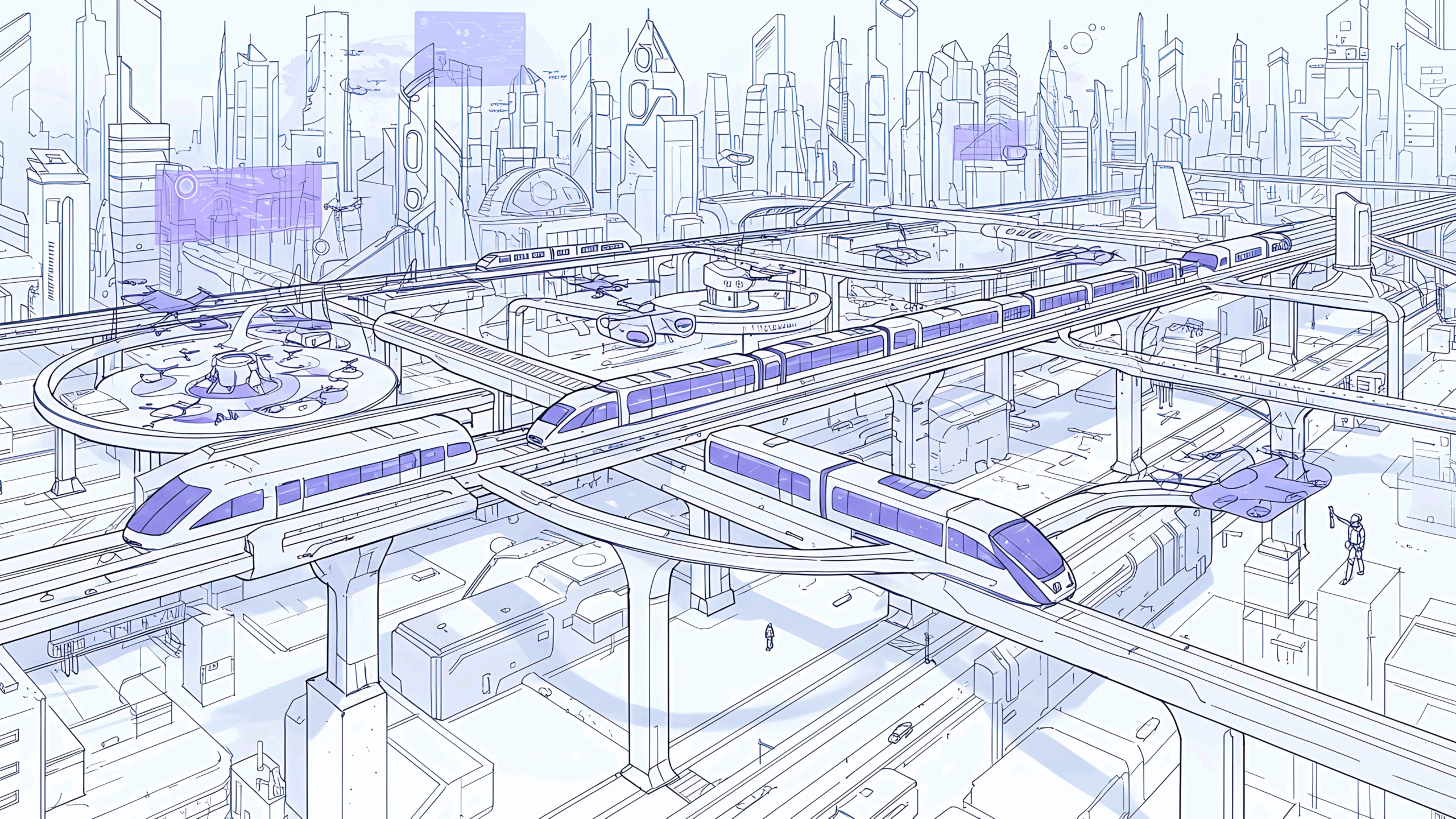
Re-optimising mobility
in the era of intelligent systems.


Re-optimising mobility
in the era of intelligent systems.
By 2040, mobility demand is expected to double, while CO₂ emissions must be halved.
We will tackle this paradox by optimizing all mobility systems on Earth in a sustainable way, fundamentally transforming the nature of society and cities.
Horses, ships, trains, cars—each new mode of transport has reshaped urban landscapes. We will create the next evolution of mobility and drive society forward.
We develop the "Mobility Intelligence Platform (MIP)"—a flexible, modular system tailored to meet the needs of transportation and logistics operators. By combining pre-configured functional components, we can swiftly and cost-effectively deliver solutions customized to each client's specific business challenges and implementation status. Our approach allows us to address recurring operational issues in the transportation and logistics sector with a highly adaptable system, ensuring efficient and scalable deployment that fits the unique requirements of each organization.


Spatial Pleasure collaborates with Living Lab Ventures, the corporate venture capital arm of Sinar Mas Land on SBT and carbon credit certification in BSD City – through the support of JETRO.

NHK World Japan reported on the JETRO (Japan External Trade Organisation) Jakarta event where Spatial Pleasure proposed collaboration with Indonesian Companies.

President Suzuki interviewed in start-up stakeholder media「 Blackbox」

How to use data to change a town – Interview with Soma Suzuki, Spatial Pleasure, on ‘data’ and ‘town’.(Only Available in Japanese)

Zip Infrastructure and Spatial Pleasure launch collaboration to generate carbon credits based on environmental benefit assessment of urban self-propelled ropeways.

Spatial Pleasure appoints Mr. Takashi Oguchi as advisor.